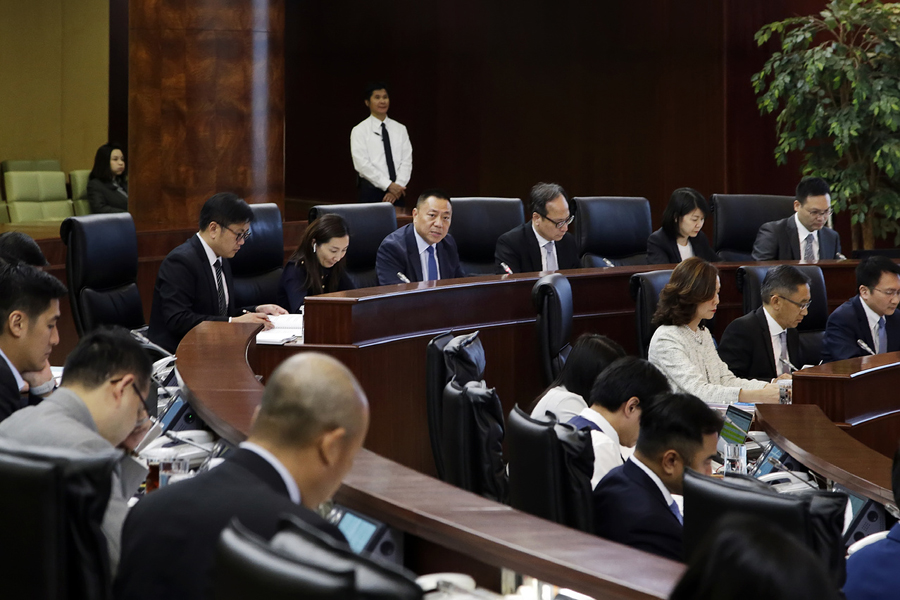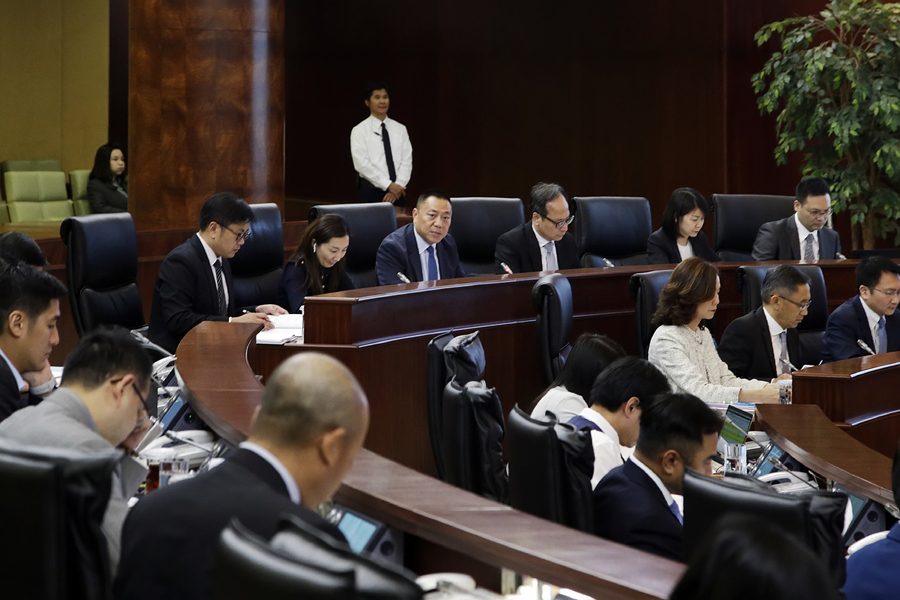Secretary for Economy and Finance Leong Vai Tac said Wednesday that the government expects its total expenditure to increase by 2.2 percent next year, amounting to 103.34 billion patacas (US$ 12.9 billion) – another spending record.
Leong made the remarks when attending a plenary session in the legislature’s hemicycle to present the government’s 2019 budget bill.
According to the bill, the government expects total receipts of 122.39 billion patacas next year, 14.35 billion patacas more than this year’s budget, up 13.3 percent.
Government expenditure next year is budgeted at 103.34 billion patacas, 2.23 billion patacas more than this year’s budget, up 2.2 percent, according to the bill.
The government’s budgeted expenditure for this year – that it presented late last year – was the first time that it exceeded 100 billion patacas.
Both the government expected revenue and expenditure for next year are new record amounts.
Addressing the legislature’s hemicycle, Leong also said he expected the government’s revenue from direct gaming taxes to amount to 91 billion patacas next year; 10.5 billion patacas more than budgeted for this year, up 13 percent.
Leong said that the expected direct gaming taxes of 91 billion patacas was based on the projected gross gaming revenues of 260 billion patacas for next year.
Macau’s gross gaming revenues last year amounted to 265.74 billion patacas.
The government has customarily been conservative in its budget revenue forecasts.
Macau’s gross gaming revenues during the first 10 months this year amounted to 251.38 billion patacas, a 14.3 year-on-year increase from the 220.01 billion patacas during the same period last year.
Leong said yesterday that the city’s gross gaming revenues – since January 1 this year – have already exceeded 260 billion patacas.
Leong said he expected a decrease in the government’s public investment plan (PIDDA), mainly due to the fact that the construction of the Macau border checkpoint (officially known as “Macau Port”) of the Hong Kong-Zhuhai-Macau Bridge (HZMB) was completed earlier this year and that no public projects of similar scale are planned for next year.
According to Leong, next year’s PIDDA is budgeted at 16.63 billion patacas, 4.51 billion patacas less than for this year, down 21.3 percent.
The bill proposes to raise public servants’ salaries from 85 patacas to 88 patacas per salary point, an increase of 3.53 percent, effective from January next year.
Public servants’ salaries were raised by 2.41 percent in January this year, from 83 patacas to 85 patacas per salary point.
Leong said the government expects additional expenditure of 884.9 million patacas next year from the proposed increase in public servants’ salaries. He did not mention the total budgeted expenditure on public servants’ salaries for next year.
The proposed salary increase for the government’s over 31,000 employees must be passed by the legislature to take effect.
The government’s expenditure on its personnel for this year was budgeted last year at around 22 billion patacas.
Leong also said that in addition to the continuation of a string of tax allowances and incentives, the government’s 2019 budget bill proposes the implementation of several new ones: enterprises will enjoy a triple reduction in profit tax for the first three million patacas of their research and development (R&D) expenditure, and a double reduction in profit tax for additional expenditure, subject to a ceiling of 15 million patacas; the personal tax allowance for employees aged 65 or above or eligible employees with disabilities will be increased to 198,000 patacas; waivers of profit tax on investment income from local bonds issued by the mainland authorities and state-owned enterprises (SOEs), and exemption from stamp duty for issuing and acquiring the respective bonds.
The outline of the bill was passed by yesterday’s plenary session. The bill will be reviewed in detail by one of the legislature’s three standing committees, after which a final article-by-article vote will be held in another plenary session next month.






